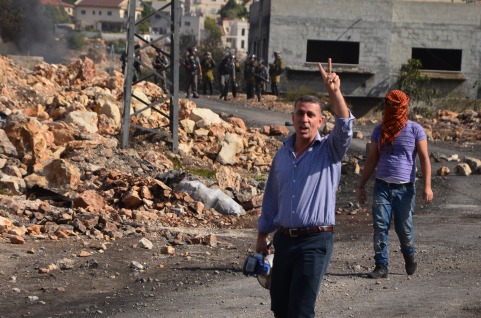Category: Reports
-
Israeli military court sentences Murad Eshtewi to 10 months in prison and a 10,000 NIS fine for participating in Kufr Qaddum protests
4th December 2014 | Popular Struggle Coordination Committee | Kafr Qaddum, Occupied Palestine Salem military court has sentenced activist Murad Eshtewi, from Kufr Qaddum village, to 9 and a half months of prison, with an additional 10,000 shekel fine. Israeli forces arrested Eshtewi on April 29th, 2014 in the middle of the night accusing him of participating…
-
VIDEO: Non-violent protest met with tear gas and stun grenades
29th November 2014 | International Solidarity Movement, Khalil team | Hebron, Occupied Palestine Today in al-Khalil (Hebron) families gathered to stage a peaceful demonstration protesting the continuing closure of the Shuhada checkpoint. The rally consisted of approximately 50 Palestinians, of all ages. The protesters met outside of the closed checkpoint at 1 pm, armed with nothing…
-
UPDATED: 18-year-old Palestinian and ISM volunteer both shot in the chest with .22 live ammunition
28th November 2014 | International Solidarity Movement | Kufr Qaddum, Occupied Palestine Update 12th December: The Italian activist know as Patrick is returning today to demonstrate in Kufr Qaddum. Last Friday, while Patrick was still hospitalised, the residents of Kufr Qaddum flew Palestinian and Italian flags in solidarity. Patrick required surgery to remove the bullet…



